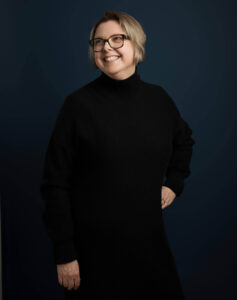My name is Chris Thompson, and before I was eventually successful in my pursuit for a PhD scholarship in 2016, I spent a long time trying to get to that end goal! I had many unsuccessful applications, interview invitations, and a good few “nearly moments”.
In this short article I will use my experience to guide you through your own search for a PhD. There is no magic solution, but there are many simple things you can consider doing to give yourself a better chance of being successful.
1. Tick as many boxes as you can.
Be sure to read the PhD advert in great detail. Aside from a relevant postgraduate degree, what else do you see in the advert? Do you meet the essential (and desirable) criteria that is listed?
There may be additional criteria such as relevant applied experience, additional accreditation/certificates, statistical skills, or research experience in a specific field.
Next time you apply for a PhD, ask yourself how many boxes you are ticking. I often still applied for PhDs where I only met half of the combined essential and desirable criteria, but it was no surprise that I often did not get invited to an interview!
Be a realist. The university will naturally shortlist applicants who align closest to the essential and desirable criteria listed on the advert.
2. Take a step back to move forwards.
What are the gaps in your PhD application? If each PhD advert you look at seeks research experience in a specific environment (e.g., qualitative research methods with elderly populations), then find a way to make this work.
It may involve doing a short-term research placement which is unpaid, but see the bigger picture. The same thing goes for a PhD advert which lists additional qualifications as an essential criterion. It may cost you a bit of money, but again, be rational and understand the long-term benefit of your actions.
Do I want to advocate unpaid work experience and paying for additional qualifications? Not particularly. But do you want to have more to show in your PhD applications and stand out from the crowd? If so, these short-term ‘steps backward’ can be vital in helping you move forward.
As a Sport Science master’s student, I knew that in order to get a PhD scholarship in football research, I had to gain research experience in a professional football environment. This resulted in a research placement period at Leicester City collecting data with academy age group players. It was unpaid, and the data collection commitments added to my already hectic schedule, but it was the clinching factor when I subsequently got accepted for a PhD scholarship, and the opportunity to work with the likes of Borussia Dortmund and TSG 1899 Hoffenheim.
Always see the bigger picture. Make the short-term sacrifices if they are required.
3. Learn the process of a PhD application submission.
Before you submit PhD application, do you ever share it with anyone first?
It may prove difficult to find a person who is willing to read all of your documents, so consider sharing segments of your application to a range of people.
For example, separate the elements of your application (i.e., CV, cover letter and research proposal) and think of several people you can consult. A master’s thesis supervisor? One of your lecturers? A friend who is currently a PhD candidate?
From my experience, I could have shared my CV with my thesis supervisor during a meeting, spoken to a lecturer at the end of a class to get their thoughts on my cover letter, and then had a coffee with a PhD student to brainstorm and critique my research proposal.
Seek feedback, but remember that bombarding one person with multiple documents isn’t the best strategy!
4. Personalise your applications
I’m amazed by how many PhD applications I’ve read which don’t even use the title of the university in the cover letter, or display any knowledge/awareness of the institution.
Take a look at the following sentences as examples. Which one sounds better?
Sentence 1 – “I want to complete a PhD at your institution as it is an environment where I will grow as a researcher.”
Sentence 2 – “For many years I have strived to become a PhD candidate at the University of Edinburgh. Your world leading research facilities, high impact publication record and award winning postgraduate department inspires me to…”
Demonstrate awareness, and put across your passion for that institution and PhD topic!
It can be long-winded and draining when starting a new application from scratch (and tough to resist the urge to just use a template cover letter you’ve used in previous PhD applications), but the extra detail you put into your documents can make or break your application.
5. Create a positive and professional social media presence.
When you apply for a PhD, there is a chance that the panel will have found your social media pages. Ask yourself what people would think if they looked at your Twitter or Instagram right now.
If I were you, I would add your social media details to your application so they can get to know more about you and your passion for the research area.
Let the panel see your Twitter page with a professional photo, a professional bio, numerous tweets and retweets about your research area, and your own engagement in debates around hot research topics.
What you don’t want to do is lead the panel to a Twitter page with an unprofessional handle (@Chris2468939282), a photo of a bird, inappropriate content, and hostile communication with other Twitter users.
Don’t be concerned with likes and followers. Just show maturity, positivity, and curiosity to learn in order to create a great first impression via your social media profile.
6. Practice makes perfect.
How do you become a better runner? You run frequently. How do you become a better chess player? You play chess frequently. How do you become better at PhD interviews? You rehearse them over and over again!
Head to Google and compile a list of the most common PhD interview questions you can find. Rehearse some answers by yourself and reflect on the quality of those answers by using a journal. Keep doing this until you feel comfortable answering those questions concisely and coherently.
Step it up a level. Hand those questions to a partner, and have them act as a panel member. Rehearse your body language when answering those questions. Get used to pausing for effect, using your hands, maintaining eye contact, and being aware of your posture.
This approach will soon become comfortable and predictable (considering that you know which questions will come up). To go to the next level, ask your partner to think of 5-10 questions of their own, and use a stopwatch to time your answers. You can never truly simulate the nerves of a real interview, but this task will simulate interview pressure and force you to think on your feet.
Remember it is just a rehearsal, and you’re doing it to make mistakes and learn. If you can fit in hours of self-reflection and several mock interviews with varying levels of pressure, your actual PhD interview won’t feel so bad!
7. Is it worth sending cold emails to PhD supervisors?
I wouldn’t get your hopes up when sending cold emails to a potential supervisor about PhD opportunities. This may open up some doors for a self-funded PhD, but if a fully-funded PhD is available, it’s most likely going to be externally advertised.
That said, it isn’t a complete waste of time to send cold emails. It can help you to get to know the leading names in your field, start some discussions, and get your name and reputation out there. Be positive and willing to learn, and you’ll start to grow your network, even if it doesn’t result in a PhD scholarship offer.
Once I started my PhD, many of the people I had emailed in the previous two years actually became PhD mentors, and were instrumental in helping me design studies, recruit participants, and put manuscripts together.
One final thing. Bear in mind how busy academics can be, so don’t take it to heart if there is no response. My approach was to send one email followed by a polite reminder after 7-10 days if I hadn’t received any correspondence. Should I experience radio silence with this academic, I would simply move on to someone else.
Don’t gain a reputation in your field for being a pest, and remember that there are plenty of people who can help you, so spread your wings!
Summary:
Here are some of the basics you want to consider when applying for a PhD:
• Be realistic when applying for a PhD. If you only meet half of the criteria listed in the advert, you’re unlikely to get an interview.
• You may need to go back to the drawing board and invest time and money in order to strengthen your CV. The criteria in PhD adverts should dictate which additional experience and accreditation you will need to pursue.
• Get the basics right. Take the time to learn how to write a CV, cover letter and research proposal. Google and YouTube are a good start, but speak to people in academia to fine-tune your applications.
• Allow interview settings to become a second nature for you. Rehearse interviews over and over again, and mix up the difficulty/simulated pressure to ensure the practice isn’t predictable.
• Consider contacting potential PhD supervisors via cold emails, but don’t expect a PhD scholarship to come your way. Use this communication to build contacts in high places.
Coming soon
In my next blog, I will be speaking about dealing with PhD application rejection.
If you want to keep the conversation going, you can contact me on Twitter (@thephdbreakdown).
Check out my YouTube channel, where I will speak about a range of topics related to applying for a PhD.






